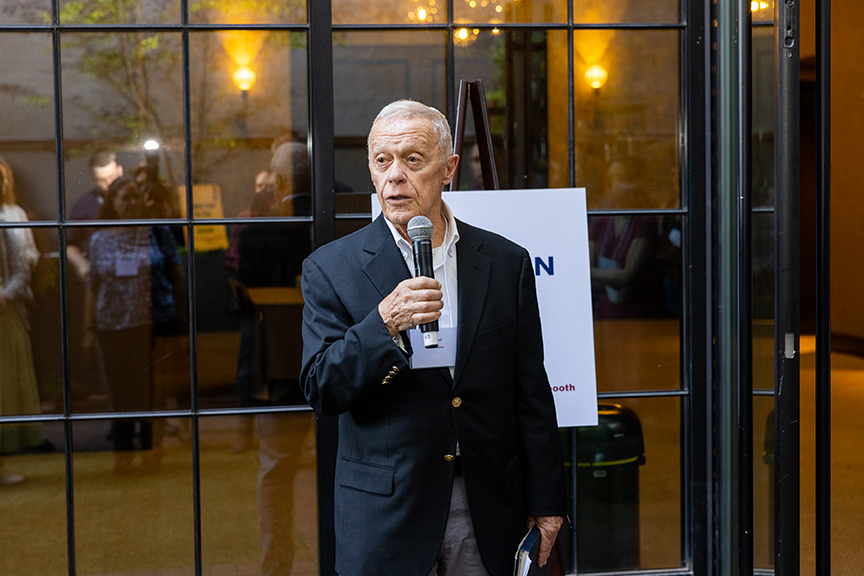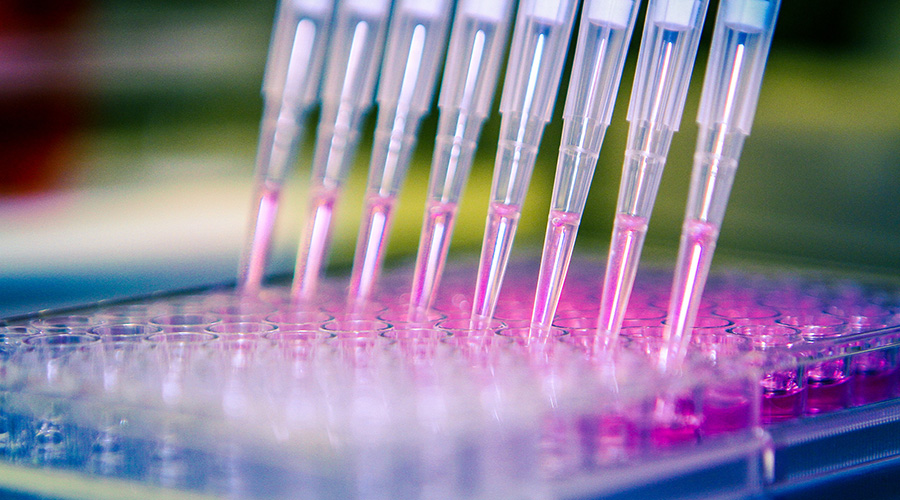In 2019, Samuel, C’85, W’85, and Jin Kim made a gift establishing a research fund to study Williams syndrome, a rare genetic disorder affecting 1 in every 7,500-10,000 people—including their son.
Coming Together
Two alumni with extraordinary dedication have set a course that will change the lives of people with Williams syndrome
The gift spurred crucial research in genetic medicine and funded an annual symposium that brings the community of researchers, families, advocates, and people with Williams syndrome together.
One of the attendees at the inaugural symposium was Michael Armellino, W’61. It would prove to be the first step toward a momentous connection. Armellino’s partner, Beverly Karch, has a granddaughter with Williams syndrome, who he calls “the light of [his] life.” Motivated to advance pivotal research and help create better futures for individuals with Williams syndrome, Armellino recently made a $25 million gift to create the Armellino Center of Excellence for Williams Syndrome at Penn Medicine. The transformative commitment was announced at this year’s symposium on May 31, aptly named “Coming Together Around Williams Syndrome.”

Mike Armellino speaking at the Coming Together Around Williams Syndrome event.
The symposium’s agenda featured research presentations—including work made possible by the Kims’ 2019 gift—and panels with parents and individuals with Williams syndrome, whose stories and inspiring words illuminated the experience of living with the disorder.
“Most who are familiar with Williams syndrome describe it largely as a pediatric disorder,” Armellino said in a press release announcing the gift. “There is no place that offers care across that person’s lifespan, and the complexity of physical and psychological symptoms require coordination that is so difficult to find at one institution. I wanted to help create a ‘front door’ for families affected by Williams syndrome—a center that could sustain itself while pushing the very leading edge of science.”
Many of the psychological, developmental, and long-term care needs of people with Williams syndrome are not traditionally available as part of the reimbursable health care model. With Penn Medicine’s connection to Children’s Hospital of Philadelphia, which is home to one of the largest Williams syndrome clinics in the country, the Armellino Center will enhance clinical and social services and advance scientific discovery to encompass the social, genetic, metabolic, and clinical complexity of Williams syndrome. Patients will be able to access psychological and psychiatric support as they age through adolescence and into adulthood; physical and occupational therapy; social skills and job training; assistance with government benefits, schooling, and aftercare; and long-term support.
“There is a lot we can take from our other successful models in genetic and rare disease research,” says Dan Rader, Seymour Gray Professor of Molecular Medicine, Chair of the Department of Genetics, and Chief of the Division of Translational Medicine and Human Genetics in the Department of Medicine at the Perelman School of Medicine and Chief of the Division of Human Genetics in the Department of Pediatrics at Children’s Hospital of Philadelphia. Rader will oversee the establishment of the Armellino Center. “When that is coupled with a visionary approach to comprehensive care, the Armellino Center for Excellence for Williams Syndrome will radically change what is possible for these families.”

Dan Rader (left) and Terry Monkoba, Executive Director of the Williams Syndrome Association (right), chat at the reception of the “Coming Together Around Williams Syndrome” symposium.
“We are grateful for the amount of work going on at Penn Medicine and CHOP, and to see the effort is generating real outcomes that are helping parents like us and our children and adults with Williams syndrome,” said Kim at the symposium. “We dared to dream, and I hope that that dream is becoming a reality. It is our energy and effort and passion that is going to make a difference”







